by Marc Neff
Third Circuit Rules Senator’s Acts Not Protected
U.S. Senator Robert Menendez was indicted by a grand jury for soliciting and accepting gifts from friend Dr. Salomon Melgen in exchange for influencing an enforcement action against Melgen for Medicare overbilling, and intervening on Melgen’s behalf in a contract dispute between Melgen and the Dominican Republic. Menendez also failed to disclose reportable gifts from Melgen, as required by the...
by Marc Neff
Third Circuit Says Government Can’t Infringe upon the Right of Allocution (U.S. v. Jason Moreno)
From July 2005 to November 2007, the defendant (Moreno) was an appraiser in a mortgage fraud scheme who for payment provided inflated appraisals to other scheme members. He also acted as broker, buyer, or seller in other fraudulent transactions. A federal jury convicted him of multiple counts of wire fraud and conspiracy to commit wire fraud. After receiving a 96-month prison, he appealed to...
by Marc Neff
Supreme Court of the United States says: The Holding of Padilla v. Kentucky Will Not Apply Retroactively
In United States v. Chaidez, No. 11–820, (February 20, 2013). The Supreme Court of the United States held that it’s earlier decision in Padilla v. Kentucky, holding that the Sixth Amendment requires defense attorneys to inform criminal defendants of the deportation risks of guilty pleas, does not apply retroactively to cases already final on direct review. Roselva Chaidez came to the United...
by Marc Neff
Fourth Circuit Holds that Money Laundering Applies to the Profits of Crime, Not the Expenses
In United States v. Cloud, 680 F.3d 396; 2012 U.S. App. LEXIS 10946, The United States Court of Appeals for the Fourth Circuit reversed Defendant William Roosevelt Cloud’s money laundering convictions, applying State v. Santos, 553 U.S. 507 (2008). Cloud’s convictions all stemmed from a complex mortgage-fraud scheme in which Cloud would dupe buyers with good credit into purchasing property as...
by Marc Neff
Fourth Circuit Finds No FBAR Penalty Exceptions for Voluntary Disclosure and Plea Bargains
In U.S. v. Williams, 2012 U.S. App. LEXIS 15017; 2012-2 U.S. Tax Cas. (CCH) P50, 475, the United States Court of Appeals for the Fourth Circuit held that a taxpayer could be liable for significant civil penalties for failing to report interest in foreign bank accounts. The United States brought an enforcement action to collect the civil penalties assessed against defendant taxpayer Williams,...
by Marc Neff
Employee Who Used Work Computers to Steal Trade Secrets Secures Dismissal of Charges
In United States v. Nosal, No. 10-10038, 2012 U.S. App. LEXIS 7151, the United States Court of Appeals for the Ninth Circuit held that theft of trade secrets by an employee using his work computer did not qualify as a federal crime under the statute used to charge him. The Court upheld the ruling of the United States District Court for the Northern District of California, which dismissed five...
by Marc Neff
“Mini-Madoff” Sentenced to 14 Years in Prison
Florida hedge fund manager Arthur Nadel recently was sentenced to 14 years in prison, stemming from a $162 million Ponzi scheme. Nadel, 77, had pled guilty to 15 counts of securities fraud, mail fraud and wire fraud. According to prosecutors, Nadel had defrauded investors by falsely claming that he was a successful attorney and trader, only later to spend their money to furnish his lavish...
by Marc Neff
“Massive Frauds” on the Rise
An FBI official recently reported to the U.S. Senate Judiciary Committee that the bureau has uncovered “massive frauds” in its continuing effort to fight financial crime. Kevin Perkins, Assistant Director of the FBI’s Criminal Investigative Division, reported that new corporate fraud cases, including newly identified Ponzi schemes, are up by 111 percent. In addition, high-yield securities...
by Marc Neff
Supreme Court of the United States to ConsiderTwenty Year Old Political Corruption Law
The Honest Services Fraud statute, a tool used by prosecutors in political corruption cases over the past twenty years, may soon be voided or modified by the Supreme Court of the United States due to vagueness and over breadth. The Honest Services Fraud doctrine presumes that a public official owes a duty of honest service to the public who he or she represents. When that public service...
by Marc Neff

